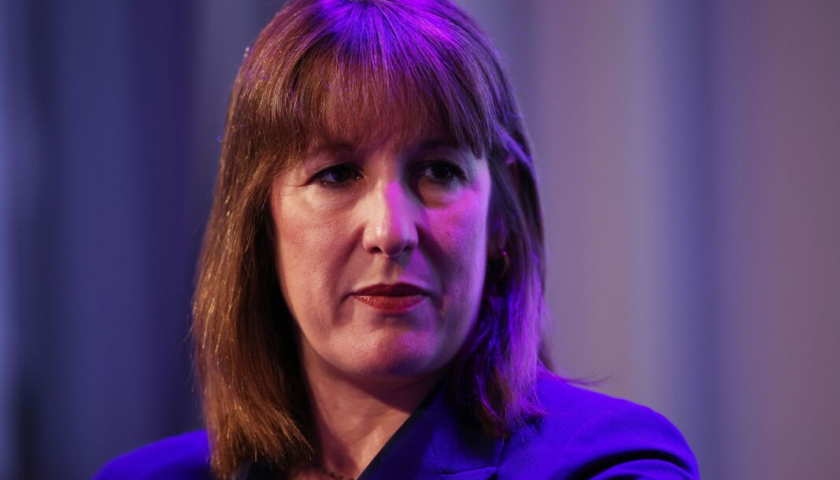I bought my first rental property when I was 19.
That was decades ago, and like many of you reading this, I didn’t just build a property portfolio, I built a business.
It’s been the foundation of my family’s security, my independence, and my identity. Now, as I watch my own children, aged 33 and 31, thrive in their own careers, I’ve found myself thinking more about what happens next.
Not if. When.
Because here’s the truth:
I don’t want to run this business forever, and I don’t want it to be sold off the moment I’m gone either.
The Fear That Keeps Us Quiet
If you’ve been a landlord for any length of time, you’ve probably felt it too.
“Will my kids even want this?”
“Will they understand it?”
“If I take a step back, will the whole thing fall apart?”
You’re not alone.
In fact, I’ve been hearing those exact fears since long before I bought my first property, from landlords ten, twenty, thirty years ahead of me.
It’s not just about money, it’s about meaning.
We didn’t work hard for this just to give it away or have it quietly dismantled after we’ve gone.
A Legacy — or Just a List of Assets?
Let’s be honest. Most of us didn’t build our companies with a corporate exit strategy in mind. We built them to create stability, freedom and options.
But now, as time moves on, the question becomes more personal:
Will this still mean something when I’m no longer here to run it?
My own children haven’t worked in the property business. They’ve seen it from the outside, the emails, the meetings, the maintenance calls, but they’ve never lived it like I have.
So the burden is mine, to make it easier for them to understand it, respect it, and, if they choose to, take it forward with the same passion and care I’ve had all my life.
Because if I don’t do that now… why would they want to?
What I’ve Learned and What I See Every Day
At Property118, I’m privileged to speak to thousands of landlords at all stages of their journey, and this issue, the one we don’t always like to talk about, comes up more than you might think.
Most of us want:
- A way to step back, not vanish
- To inspire, not impose
- To protect our business, without complicating our family’s future
What we don’t want is to burden our children, or worse, confuse them, because confusion leads to one thing: a sale.
This Is About Listening, Not Lecturing
I don’t believe in forcing children into a family business, but I do believe in making the business worth inheriting.
That means:
- Making it understandable
- Making it flexible
- Making it protected
… and most of all, making it feel like a legacy, not a liability.
That’s what I want for my own children, and I know that’s what most of you want too.
The Fear of Being Tied to It Forever
Here’s what I’ve realised, and I know I’m not alone in this:
I don’t want to be doing this forever.
Not because I don’t love it, but because I’ve earned the right to slow down, to travel, to spend more time with my wife, to be present in a way that wasn’t always possible when I was growing the business.
Yet, without a plan… I will be tied to it forever, because who else is going to run it?
The lettings. The compliance. The finance.
The decisions that always seem to land at the worst possible time.
This isn’t a complaint, it’s a confession.
I want to know that the business I’ve built will carry on without me, not because I’m gone, but because I chose to step back.
Not Just for Them But Through Them
I don’t just want my children to inherit a property portfolio.
I want them to see the same I saw.
I want them to take an interest, not out of duty, but out of belief, belief that this business can continue to serve our family for generations, long after I’m gone.
I want them to learn how it works, to shape it with their ideas, to run it in a way that fits their lives, but still holds true to the values I’ve built it on.
And I want all that to happen while I’m still around, so I can guide. So I can support. So I can enjoy the freedom I’ve earned without fearing the future.
Because if that doesn’t happen while I’m here, what are the chances it’ll happen when I’m not?
This Isn’t New to Me, I Saw It Coming Years Ago
Everything I’ve written so far, the worries, the questions, the desire to see my children engaged, none of it is new to me.
In fact, I started thinking about it well over a decade ago.
I realised early on that if I wanted the business to survive, I couldn’t leave things to chance. I couldn’t just assume my children would want it, understand it, or feel confident enough to take it forward, especially if all they’d ever seen was me doing everything myself.
So I began making changes.
Not just legal changes, although there were some. And not just financial planning, although that played a role too.
I started thinking about how to run a family business that could gradually become their business. One that was structured, protected, and understandable.
I wanted to make it easier for them to take an interest, and impossible for them to feel lost or intimidated.
I didn’t need them to jump in overnight; I just needed to leave the door open and make it easy for them to walk through when the time was right.
Looking back, I’m grateful I started early.
Because these conversations take time and the earlier you start, the more relaxed and natural the transition becomes, for you and for them.
Structure, Strategy, and Shared Goals — Why the Business Needs More Than Just Good Intentions
Once I started thinking seriously about my retirement, and about my children one day taking the reins, I realised something important:
Good intentions aren’t enough.
I might have wanted my children to be involved.
I might have dreamed of a future where the business supported our whole bloodline.
But unless the business was set up in the right way, it would never happen.
Why?
Because no one wants to inherit a mess.
No one wants to step into a business that feels fragile, confusing, or overly dependent on the founder.
If I was serious about continuity, about this being a family business, not just a list of assets, I had to get serious about:
- Something robust, clear, and future-proof
- Goals, not just mine, but goals my children could buy into
- Strategy, a roadmap that made sense for everyone, not just me
I didn’t want to build more complexity, I wanted to reduce it, but I knew I had to get the foundations right:
- How decisions would be made
- How would value be protected
- How involvement would grow over time, without pressure or confusion
- And how I could still receive income, still retain oversight, and still enjoy retirement, without being trapped in the day-to-day
That’s when things started to feel possible. Not rushed. Not rigid. Just quietly, confidently… possible.
Where It All Started — And What I Learned From My First Ever Client
Long before I founded Property118, I began my career in financial services. I was just 19 years old, eager to learn and ready to help people make sense of their money.
I’ll never forget my first-ever client meeting.
It wasn’t a textbook case.
It was a man in his early 60s, not much older than I am now, who’d just been told he had only a few weeks to live.
He wasn’t a landlord. He wasn’t rich, but he was vulnerable and completely unprepared.
- No Will.
No Power of Attorney.
And his life insurance policies hadn’t been written into trust, which meant that even if they paid out, the money could be tied up in probate for months, maybe years.
I remember sitting across from him, thinking: “How has it come to this?”
That meeting changed me, because it showed me something most young men rarely get to see: What happens when families aren’t ready.
It wasn’t just paperwork. It was real, and from that day forward, I made it my mission to help people avoid that kind of uncertainty and to make sure my own family would never be in that position.
A Career Built on Both Sides of the Table — Finance and Property, Head and Heart
To cut a long story short, I didn’t stumble into property, and I didn’t just wake up one day and decide to become a landlord advocate.
My career in financial services ran in parallel with building my property business, and over the years, each made the other stronger.
I started in life insurance and estate planning. Then I moved into commercial underwriting. Eventually, I founded my own commercial finance brokerage, and that opened doors I never could have imagined.
I worked with insolvency practitioners to help turn around failing businesses, and I worked with landlords who were building property empires at pace. I saw the full spectrum, from chaos to clarity, from crisis to control.
I was proud to be a founding member of the National Association of Commercial Finance Brokers (NACFB) and in 2008, my brokerage was ranked #38 in The Sunday Times Profit Track 100, a recognition of the success and scale we’d achieved.
But I’ve never forgotten the lessons from those early days.
I saw what happens when people don’t plan.
I saw what’s possible when they do.
And I applied everything I learned to build my own rental property portfolio, not as a hobby, but as a business.
When It Was Time to Fight, We Fought
Later in my career, something changed.
Landlords, including myself, began to face challenges we hadn’t seen before. New rules, new restrictions, and, in some cases, unfair treatment by financial institutions.
One case struck a particular chord. The West Bromwich Mortgage Company tried to change the terms of their buy-to-let mortgage contracts mid-term and without warning.
I wasn’t willing to let that slide.
Through Property118, I became the lead litigant in a landmark representative legal action. The case took nearly three years, but we didn’t just win. We secured a hands-down victory at the Court of Appeal, which became binding case law that protected every landlord who has ever had a lifetime tracker rate mortgage. Over £27.5 million in overpaid mortgage interest was recovered for landlords, and we achieved 100% recovery of legal costs.
It wasn’t about money. It was about principle.
It was about showing that landlords deserve to be treated fairly, and that when we stand together, we can achieve real results.
That principle hasn’t changed.
We are now deep into the process of taking HMRC to the Tax Tribunal over their sudden and unjustified change of stance on incorporation reliefs, a long-standing area of tax law that has been settled practice for over 50 years. These reliefs are clearly set out in HMRC’s own guidance manuals and in industry-standard reference works like Simon’s Taxes by Lexis Nexis. Many of their arguments have previously been settled in case law.
Without getting into the legal complexities, what’s most concerning is that HMRC has still failed to respond formally to serious concerns raised by the Chartered Institute of Taxation in a letter dated 28th February 2024.
This isn’t just a technical dispute. It’s a matter of trust, consistency, and fairness for every landlord who has played by the rules.
Once again, we’re standing up, not just for ourselves, but for thousands of property business owners who deserve clarity and confidence when planning for their future.
Why This Matters So Much to Me And Why It Shouldn’t Be This Hard
When I speak to landlords through Property118, whether it’s in forums, consultations, or just private conversations, I often hear the same quiet fear:
“I’ve built something valuable… but I have no idea what happens next.”
Some think their kids will figure it out eventually.
Some assume a Will is enough, many haven’t even got around to sorting that!
Most just keep putting it off, because thinking about the future feels overwhelming, expensive, or just… too soon.
But I’ve been there, and I want to tell you: it doesn’t have to be that way.
After everything we’ve been through, the risks we’ve taken, the sacrifices we’ve made, we deserve the freedom to enjoy what we’ve built, without fear that it will all unravel when we step back.
I’ve spent my whole career helping people avoid unnecessary regret, and I built Property118 to be a place where landlords can get the support, structure, and strategy they need, not just to succeed today, but to leave something lasting for tomorrow.
Because the true legacy of a rental business isn’t in the bricks and mortar, it’s in the way you pass it on. With care, with clarity, and with confidence.
Contact one of our highly experienced mortgage advisors today on 0121 500 6316 to discuss your mortgage needs.



